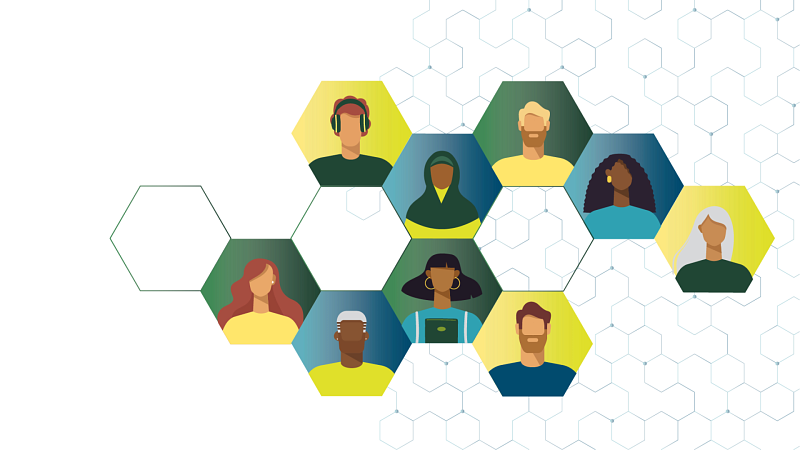
UO Mentorship Reimagined
Year-long initiative lays foundation for network-based mentorship
UO Mentorship Reimagined, a year-long initiative convened by the Office of the Provost aimed at driving interest in establishing mentorship networks on campus, succeeded on several levels, and laid a foundation for the work to continue, said Sierra Dawson, associate vice provost for faculty and leadership development.
The focus of the initiative has been on moving on from single-mentor models to build capacity through mentorship networks in which mentors enact three key characteristics: responsiveness, reciprocity, and adaptivity.
“This past year has been about a ‘year of mentorship’, where we were actively sharing a lot of information about quality network-based mentorship, and now we want to continue supporting our campus partners and the work they are doing to create structured mentorship programs,” Dawson said.
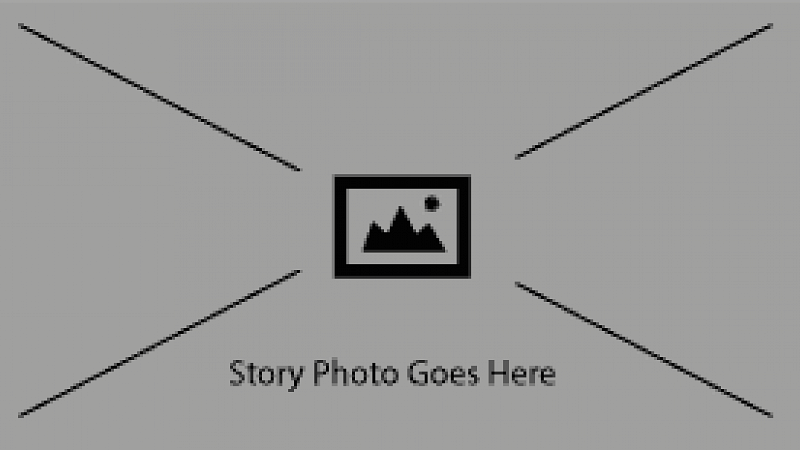
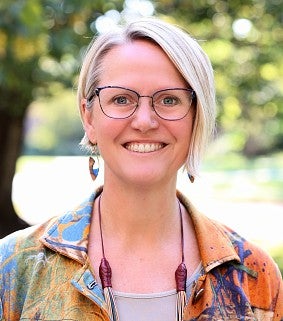
The goal is to lower the overhead and the idea of one magical mentor and instead break open people’s ideas of what mentorship could look like if it’s a network-based approach.
Dawson said it is likely every school and college will have their own structured mentorship programs within two years – and not because of a mandate to do so, but because they see the value of such programs and because they know there is support and a framework to back them up.
“When people hear about it, they say, that makes sense,” she said. “There’s so much strong evidence about how quality mentorship is important for retention of faculty and staff and students.”
But there are other, less structured models that work as well.
“The goal is to lower the overhead and the idea of one magical mentor and instead break open people’s ideas of what mentorship could look like if it’s a network-based approach,” Dawson said. “It can be one episode, even one conversation, where that person was a mentor for you in that moment.”
“We’re on a good trajectory,” Dawson said.
Provost Mentorship Fellows
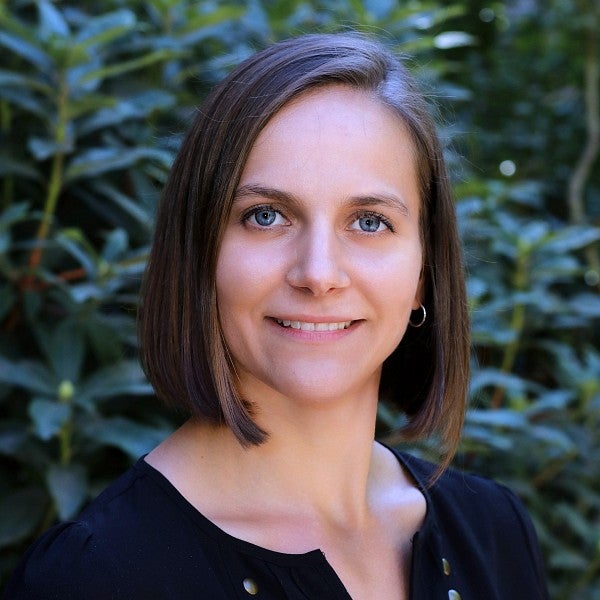
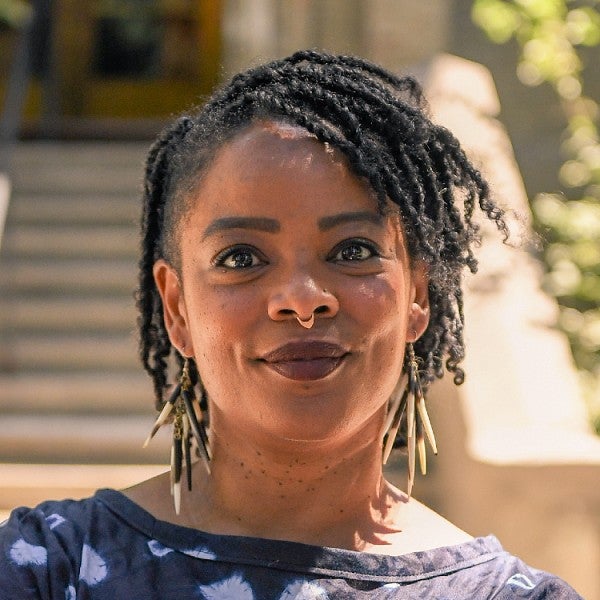
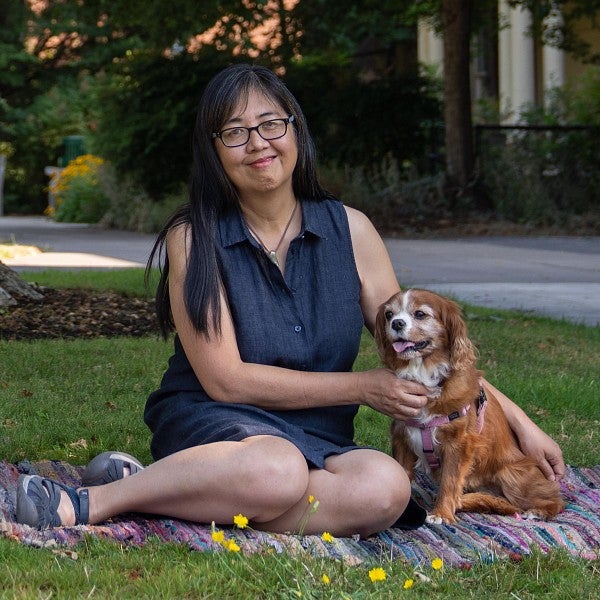
Maile Hutterer, an associate professor in the College of Design, was part of the inaugural class of Provost Fellows in 2021, with a focus on culturally responsive mentoring.
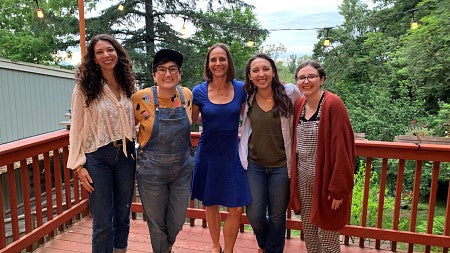
“I was thrilled we had a year-long focus on mentorship,” she said. “I thought the programming was rich and varied. People with all different types of interests could find parts of the program that met their needs.”
For her, one of the highlights was a night of storytelling, similar to the popular podcast The Moth.
“I shared a story about an experience I had with my mentor and dissertation adviser in graduate school,” she said.
When they began working together, her adviser “decentered” himself from her research project and put Hutterer in the center instead, she said.
“It let me pursue the project that was important to me, rather than the project that was important to him,” she said.

It was a really powerful moment for me in thinking about mentor-mentee relationships and ways that relationship is defined by the intellectual goals of the mentee.
That shift, she said, was fundamental in how she shaped her research, how she defined the questions she was asking about her research, and how she became the kind of scholar she wanted to be.
“It was a really powerful moment for me in thinking about mentor-mentee relationships and ways that relationship is defined by the intellectual goals of the mentee,” she said. “I often reflect on that when working with people at all levels. The relationship is not about me, but about them.”
Meet the Collaborators
This initiative was a cross-campus collaboration. Each collaborator brought in key teammates for input, meeting participation, training, and program development.
- UESS: Amy Hughes Giard
- Student Life: Marcus Langford
- DEI: Charlotte Moats-Gallagher and Mike Murashige
- Alumni Association: James Chang
- Division of Graduate Studies: Krista Chronister, tia north, Paolo Daniele
- HR: Tiffany Lundy, Chloe Barnett
- UO Libraries: Brian Lym
- OA Council: Spencer Smith
- UO Postdoc Association: Rolf Sykberg, Laura Desban
- Knight Campus: Nathan Jacobs, Stacey York
- Communications: Mel Chambon
- Office of the Provost: Sierra Dawson, Kaori Idemaru (2023-24 Provost’s Mentorship Fellow)
- Academic Impressions: Yianna Kappas

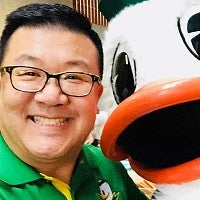
As a collaborator in the Mentorship Reimagined initiative, I was re-energized by being part of the workgroup. It was inspiring to witness the excitement that came from all corners of the university: from colleagues working with undergraduate and graduate students to those who support faculty and staff (including classified and OAs). The concept of network-based mentoring helps everyone see that the people around them can be a resource for both personal and professional success. At the same time, it helps everyone recognize that they themselves can support others, which can be an empowering revelation.

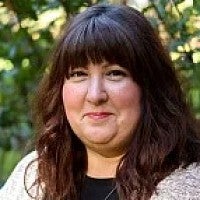
I was involved in the Mentorship Reimagined Collaborators Group representing the Division of Undergraduate Education and Student Success. I have been running undergraduate peer mentoring programs for over 20 years, so I was excited to be a part of this group. Being part of the collaboration group helped me refine my own mentorship style and develop new skills to train future mentors. I also expanded my network through co-chairing a Community of Practice for Undergraduate Student Mentoring. This group has been a source of new ideas and lots of sharing amongst a group of over thirty supportive and passionate people who want our undergraduates to thrive through mentorship.

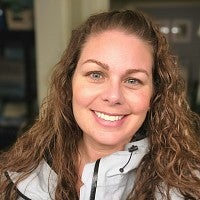
I served as a collaborative partner on the Mentorship Reimagined initiative workgroup. My primary focus was facilitating workshops with UO staff, and I also hosted sessions with student groups, alumni, and partnered with Sierra at the SEE Summit and OA leadership symposium. The Mentorship Reimagined program introduced and supported a new way of thinking about and engaging with mentorship. I hope that participants were empowered to lean into their own agency around creating a network of developers that support not only their current needs but also achievement of their goals. Mentorship is essential to our engagement and success in the workplace. Everyone can be a mentor and deserves to be mentored. My participation as facilitator in this effort was highly rewarding.
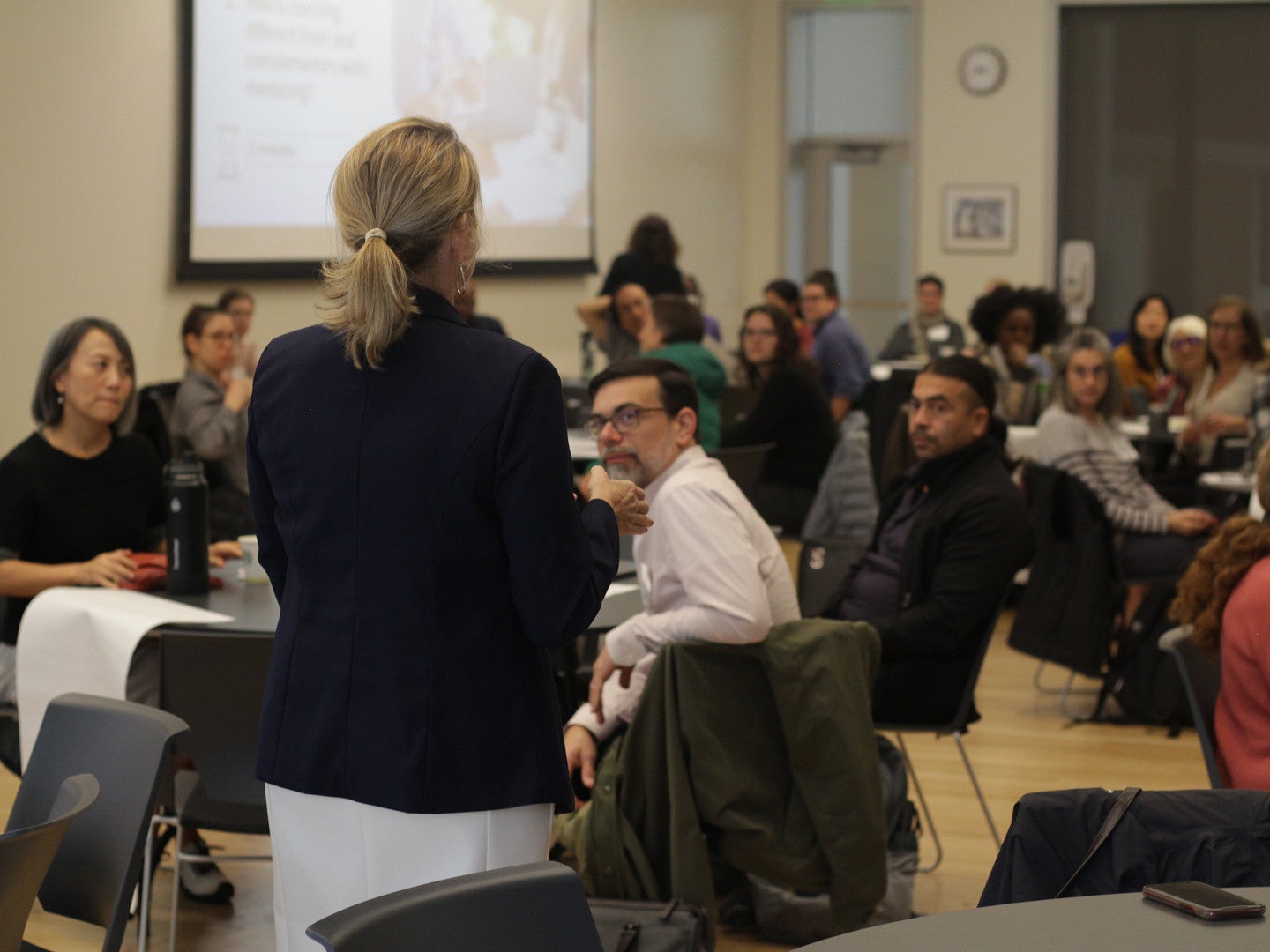
Continuing the work
Over the course of the Year of Mentorship, members of the University of Oregon community were brought together to learn more about network-based mentorship in a series of workshops and events.
There are still several opportunities for faculty, staff, and students to invest in mentorship in their own lives, as mentors and mentees. A good place to start is building your own mentorship network map.
Communities of Practice
The communities of practice listed below have been created for organizers of mentorship programs, providing a place to share successes, challenges, resources, or to ask questions, which will lead to more effective mentorship programs, and a decrease in the burden on each individual organizer.
- Staff Mentorship – Community of Practice: To join contact Tiffany Lundy, Associate Director Learning & Development, Human Resources.
- Faculty Mentorship – Community of Practice: To join contact Sierra Dawson, Associate Vice Provost for Faculty & Leadership Development, Office of the Provost.
- Undergraduate Student Mentorship – Community of Practice: To join contact Amy Hughes-Giard, Assistant Vice Provost for First-Year and Transition Student Experience Programs, Undergraduate Education and Student Success; or Jimmy Howard, Associate Dean of Students.
- Graduate Student or Postdoctoral Fellow Mentorship – Community of Practice: To join contact Nathan Jacob, Director, Research Training and Career Acceleration, Knight Campus.
Mentorship Programs
A wide variety of mentorship programs are available to members of the University of Oregon community. Whether you're a faculty member, graduate student, or undergraduate student, there's a resource that can help you develop your own mentorship network.
Explore all mentorship resources
Past Workshops & Events
Following the Mentorship Reimagined Kickoff in October 2023, with network-based mentorship expert Dr. Dawn Chanland, additional opportunities to hone your skills as a mentor or mentee were offered. Below are some highlights from the Year of Mentorship.
OCT 2, 2023
UO Mentorship Reimagined Kickoff
Dr. Dawn Chanland presented a workshop on what coaching conversations look, sound, and feel like and delivered a keynote speech. A Mentorship Program Development session provided a space for participants to share about the programs they have built, are building, or want to build at the University of Oregon.
DEC 7, 2023
UO Staff Workshop
In December, the first workshop for UO staff members was held. In this participatory session, attendees engaged in guided personal reflection and small group discussions exploring network-based mentorship. Additional workshops were offered throughout the Year of Mentorship.
JAN 29, 2024
Responsive Mentorship at UO
Participants learned how to tailor their approach to serving as both a mentor and a mentee through cultivating adaptability and developing open, equitable communication over the course of four 90-minute workshop sessions, which included:
- Journeys in Mentorship - Stories from Students and Faculty
- Mentoring and You - Responsive Mentorship Story Circles
- Evidence-Based Mentoring - Exploring the Literature on Responsive Mentorship
- Practicing Mentorship - Practical Skill Development for Mentors and Mentees
APR 25, 2024
Workshop for Mentees: How to build your mentorship network
During this 1-hour interactive zoom workshop, mentees learned how to use their agency to develop a robust mentorship network that includes peers, role models, coaches, sponsors, supervisor, advisors, etc.
APR 29, 2024
Workshop for Mentors: How to be a responsive, reciprocal & adaptive mentor
During this 1-hour interactive zoom workshop, mentors learned how to help their mentees develop their mentorship network, as well as how to enact the relational characteristics that lead to high quality mentorship.
